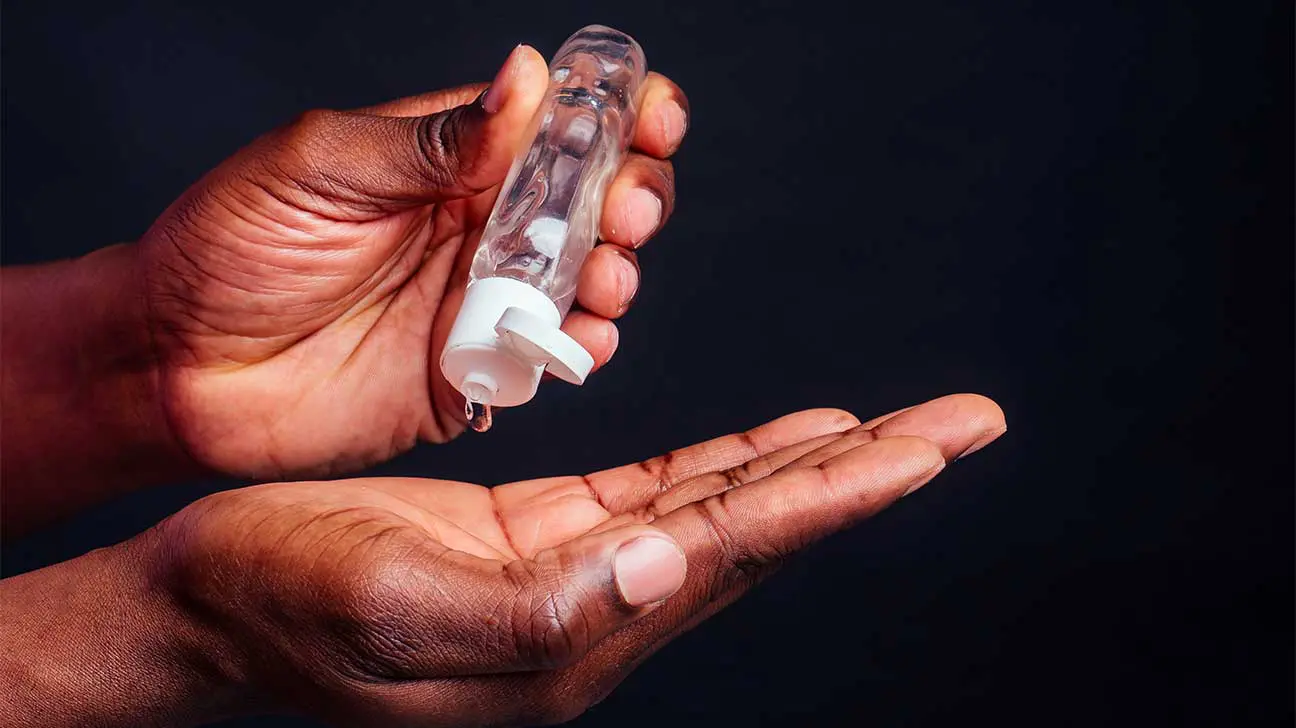
People who abuse alcohol may drink a variety of alcohol-based substances if they are unable to access traditional alcoholic beverages or have become addicted to alcohol.
This can include:
- hand sanitizer
- mouthwash
- disinfectants
- antifreeze
In August of 2020, the Centers for Disease Control and Prevention (CDC) released a new report highlighting the serious adverse effects that can come from ingesting alcohol-based hand sanitizer, including alcohol poisoning and death.
Is There Alcohol In Hand Sanitizer?
Hand sanitizers can contain many ingredients, including certain types of alcohol. According to the CDC, alcohol-based hand sanitizers can contain anywhere between 60 to 95 percent alcohol, depending on where it’s bought and the manufacturer.
Types of alcohol that can be found in hand sanitizers include:
- ethanol (ethyl alcohol)
- isopropanol (isopropyl alcohol)
- methanol (methyl alcohol)
Store-bought hand sanitizers generally contain about 60 percent alcohol. Healthcare settings may stock hand sanitizer products that contain a higher percentage of alcohol content, ranging between 60 to 95 percent.
Hand sanitizer products containing methyl alcohol are illegal. According to the U.S. Food and Drug Administration (FDA), methanol is not an acceptable ingredient in hand sanitizers, mostly due to its high toxicity.
During the summer of 2020, federal health officials began issuing warnings that illegal forms of hand sanitizer containing methanol were being sold across the United States. Health departments soon reported cases of methanol poisoning related to the consumption of alcohol.
Why Do People Drink Hand Sanitizer?
Over the course of the COVID-19 pandemic, the use of hand sanitizer has been strongly encouraged to prevent individuals and families from spreading or contracting the coronavirus.
Health agencies have reminded individuals, however, that alcohol-based hand sanitizers “should never be ingested” due to serious and potentially fatal side effects.
Reasons why someone may drink hand sanitizer include:
- high alcohol content
- less expensive than alcoholic beverages
- easier to purchase
- social pressures/experimentation
- alcohol addiction
According to the CDC, children are one of the greatest concerns when it comes to drinking hand sanitizer, as they may drink it by accident. In addition, adults with an alcohol use disorder (alcohol addiction) may also drink hand sanitizer in lieu of alcohol.
Dangers Of Drinking Hand Sanitizer
Drinking hand sanitizer can be very dangerous, especially if the sanitizer contains methanol. The dangers of drinking hand sanitizers containing any type of alcohol, however, have been established for decades.
Dangers of hand sanitizer ingestion can include:
- alcohol poisoning
- anion-gap metabolic acidosis
- seizures
- visual impairment
- permanent vision loss (blindness)
- death
In May and June of 2020, 15 people were hospitalized in Arizona and New Mexico for methanol poisoning after ingesting hand sanitizer products, according to state health departments. Four of these individuals died.
The New Mexico Department of Health confirmed that seven of their reported cases, which resulted in three deaths, were related to alcohol addiction.
In 2012, six teenagers were also reported dead in California after drinking hand sanitizer that contained alcohol, according to local health officials. This brought national attention to the issue.
Can You Become Addicted To Alcohol From Drinking Hand Sanitizer?
The short answer is: Yes. Drinking heavy amounts of alcohol on a regular basis carries a risk of alcohol dependence and addiction, no matter where the alcohol is found.
Drinking hand sanitizer poses a serious risk for addiction in part because store-bought varieties can be up to 120-proof. The higher the alcohol content, the greater the risk for dependence, addiction, and other dangers associated with heavy drinking.
What To Do If You’ve Been Drinking Hand Sanitizer
If you or someone you know has ingested hand sanitizer, seek medical attention right away. Even if only a small amount has been consumed, it’s important to get checked out by a healthcare professional who can assess you for health concerns.
Drinking hand sanitizer may cause the following side effects:
- headache
- blurred vision
- nausea and vomiting
- stomach pain
- decreased coordination
- unconsciousness
You can seek help for alcohol poisoning by calling your local poison control center, calling 9-1-1, or contacting your nearest emergency health department.
Finding Treatment For Alcohol Abuse
Alcohol abuse and addiction are some of the most common reasons for drinking alcohol-containing household products like hand sanitizer.
If you’ve consumed hand sanitizer for its alcohol content due to stress, social pressures, or addiction, you’re not alone. Millions of teenagers and young adults in the United States struggle with a drinking problem and related mental health issues.
If you or someone you know has been drinking hand sanitizer to get drunk, or to stave off alcohol withdrawal, call our helpline today to find available treatment options near you.
Addiction Resource aims to provide only the most current, accurate information in regards to addiction and addiction treatment, which means we only reference the most credible sources available.
These include peer-reviewed journals, government entities and academic institutions, and leaders in addiction healthcare and advocacy. Learn more about how we safeguard our content by viewing our editorial policy.
- The Centers for Disease Control and Prevention (CDC) — Morbidity and Mortality Weekly Report (August 5 2020)
https://www.cdc.gov/mmwr/volumes/69/wr/mm6932e1.htm - Texas Medical Center — Don’t drink the hand sanitizer
https://www.tmc.edu/news/2020/08/dont-drink-the-hand-sanitizer/ - NBC San Diego — Six Teens Hospitalized After Drinking Alcohol Derived From Hand Sanitizers
https://www.nbcsandiego.com/news/local/six-teens-hospitalized-after-drinking-alcohol-derived-from-hand-sanitizers/1951294/


